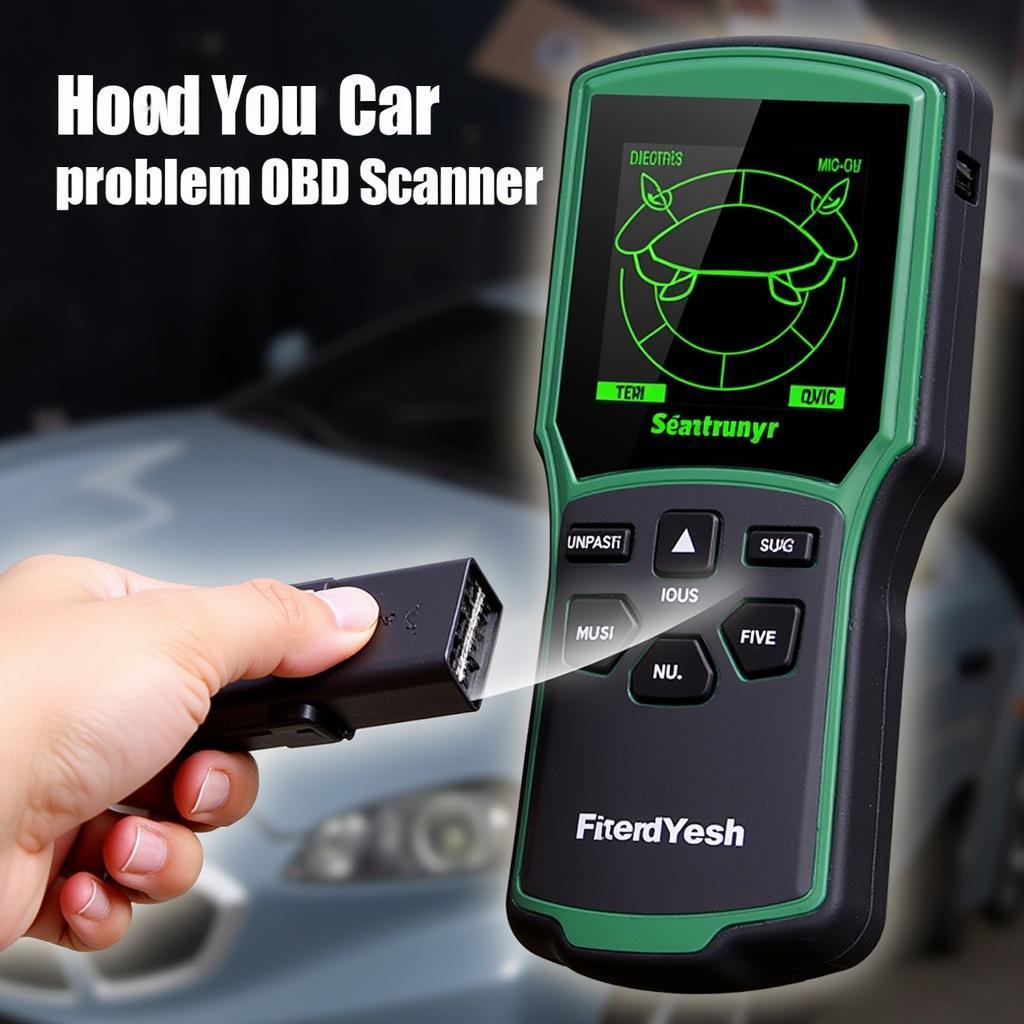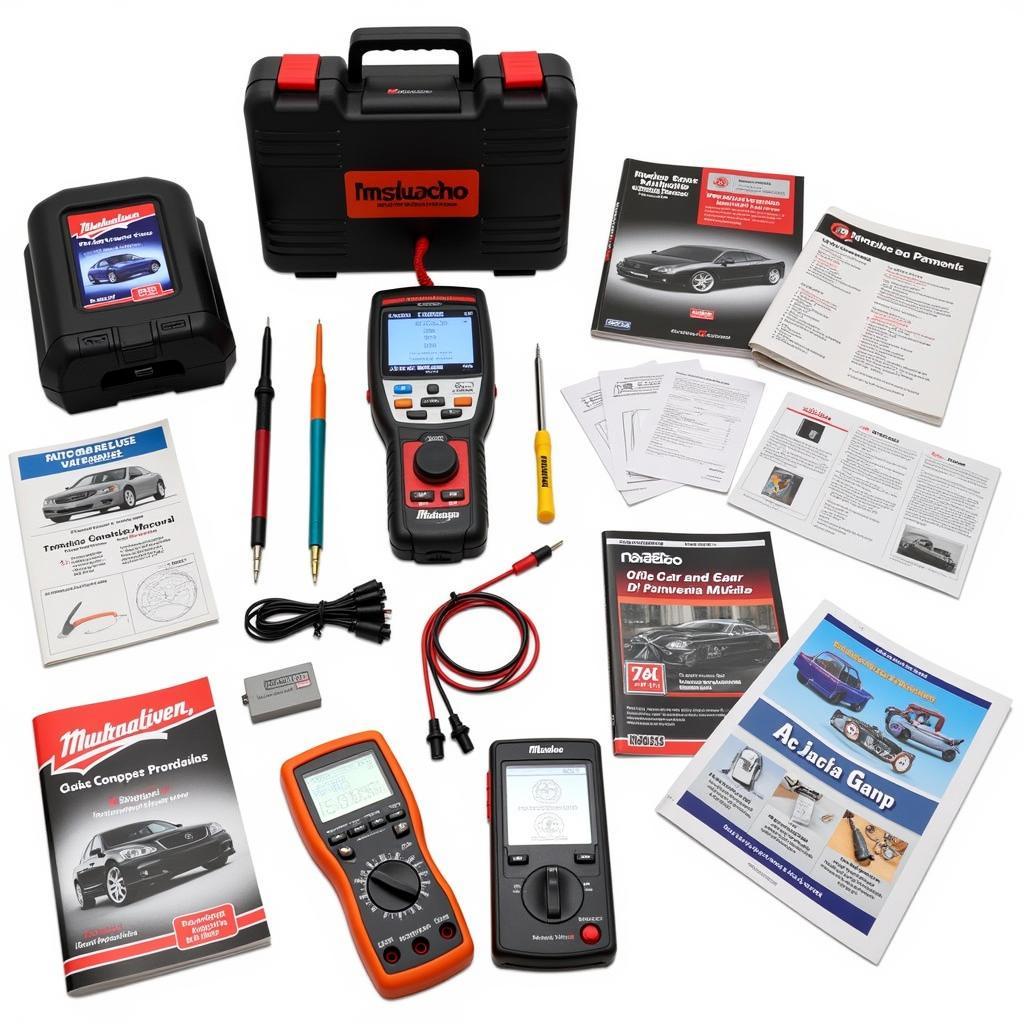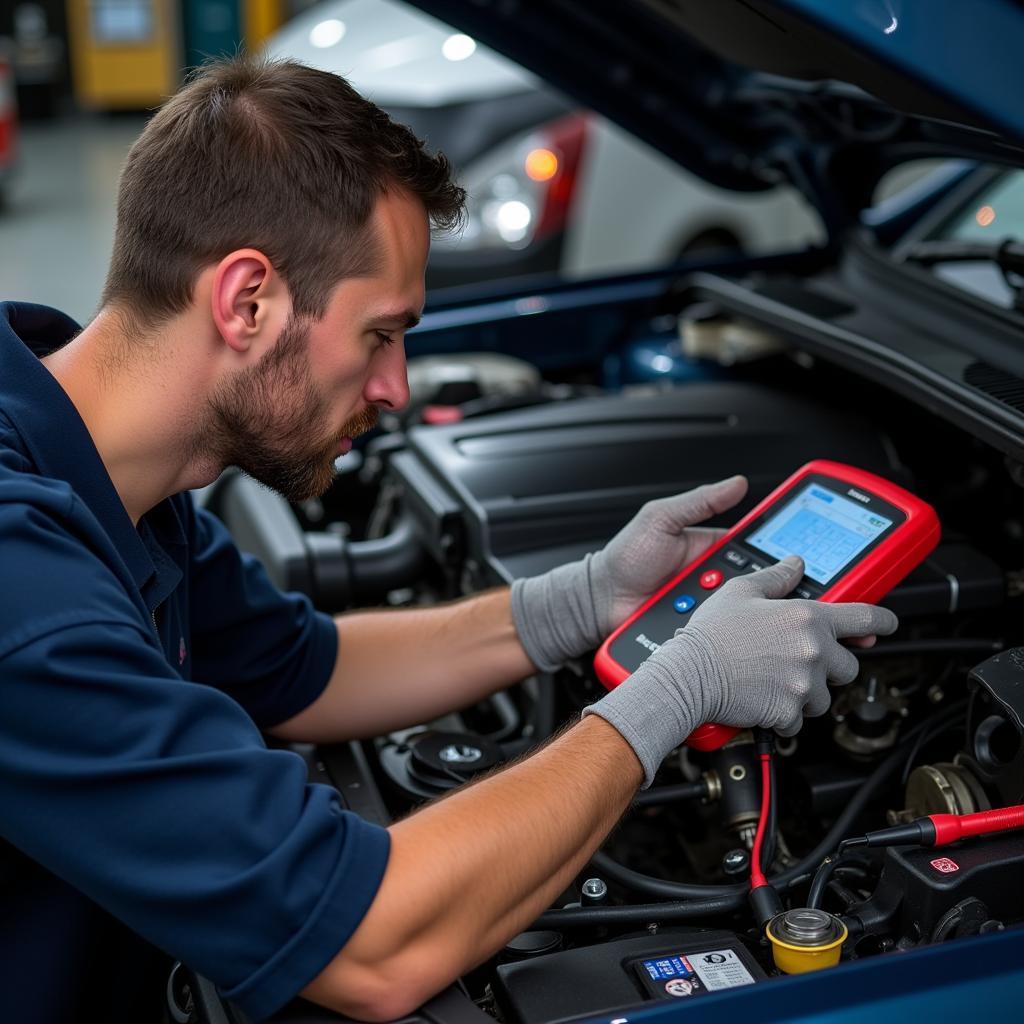Intermittent component failures can be a nightmare for car owners, especially when they don’t trigger any diagnostic trouble codes (DTCs) or OBD codes. This can make diagnosing and fixing the problem incredibly challenging.
Imagine you’re driving your car and suddenly the headlights start flickering. You pull over and check the fuse box, but everything seems fine. You restart the car, and the headlights work perfectly again. You drive home, but the problem returns a few days later. This type of intermittent issue can be frustrating, but it’s not uncommon.
In this article, we’ll explore the common causes of intermittent component failures that don’t trigger OBD codes, how to diagnose these issues, and the tools you might need to identify and fix them.
Why Some Failures Don’t Trigger OBD Codes
The OBD system is designed to detect faults that can impact emissions or safety. While it’s very effective at detecting many issues, there are some types of failures that may not be serious enough to trigger a code. These can include:
- Minor electrical glitches: A slight interruption in the electrical signal to a component might not be enough to cause a permanent fault.
- Loose connections: A wire that is slightly loose or corroded can cause intermittent failures.
- Intermittent sensor problems: Sensors can fail temporarily due to heat, vibration, or other factors.
- Software bugs: In modern vehicles with sophisticated electronic systems, software glitches can cause intermittent issues.
Common Symptoms of Intermittent Component Failures
Here are some common symptoms of intermittent component failures that don’t trigger OBD codes:
- Intermittent warning lights: The check engine light or other warning lights might flash on and off randomly.
- Fluctuating performance: The car might experience intermittent hesitation, misfires, or other performance problems.
- Electrical malfunctions: You might notice problems with the headlights, taillights, radio, or other electrical components.
- Odd noises: You might hear strange noises coming from the engine or other parts of the vehicle.
Diagnosing Intermittent Component Failures
Diagnosing these issues can be difficult, as they may not leave any permanent traces in the vehicle’s computer system. Here are some common troubleshooting steps:
1. Use a Scanner
Even though these failures may not trigger OBD codes, a diagnostic scanner can still provide valuable information. It can help you check for any stored codes, monitor live data, and perform tests on various systems. A  Budget OBD Scanner for Automotive Diagnosis can be a valuable tool for DIYers, while professional mechanics have access to more advanced scanners.
Budget OBD Scanner for Automotive Diagnosis can be a valuable tool for DIYers, while professional mechanics have access to more advanced scanners.
“A scanner can give you a lot of information about your car’s health, even if it doesn’t have a code,” says **John Smith**, an experienced automotive technician. “It can help you see if any of the sensors are acting erratically, or if there are any other anomalies.”
2. Inspect Connections and Wiring
Carefully inspect all electrical connections and wiring for any loose, corroded, or damaged components. This includes the fuse box, battery terminals, and connections to sensors and actuators.
3. Check for Damaged Components
Visually inspect components that might be susceptible to intermittent failure, such as relays, switches, and connectors.
4. Test Components
You can use a multimeter to test individual components for proper operation. This can help you identify specific faulty components.
5. Monitor Live Data
Use a scanner to monitor live data from various sensors and systems. This can help you identify any abnormal readings or patterns that indicate a possible problem.
6. Replicate the Problem
If you can, try to replicate the issue while you are monitoring live data. This can help you pinpoint the exact time and conditions that trigger the failure.
Tools and Resources for Diagnosis
 OBD Scanner for Automotive Repair
OBD Scanner for Automotive Repair- Multimeter
- Diagnostic software
- Repair manuals
- Online forums and resources
Intermittent Component Failures in European Cars
European cars are known for their complex electronic systems. These systems can be more prone to intermittent component failures, as they have a higher density of sensors and actuators. If you’re experiencing intermittent issues in a European car, a specialized dealer scanner is often required.
 European Car Diagnostic Tools can be a good resource for understanding the specific codes your car might be generating.
European Car Diagnostic Tools can be a good resource for understanding the specific codes your car might be generating.
Dealing with Intermittent Component Failures: Tips and Strategies
- Document the Problem: Keep a detailed log of when the problem occurs, what the symptoms are, and any other relevant details. This will help you communicate the problem to a mechanic.
- Don’t Ignore It: While these issues might seem minor, they can get worse over time. Early diagnosis can prevent more significant problems.
- Get Professional Help: If you’re unable to diagnose the problem yourself, don’t hesitate to seek professional assistance. A qualified mechanic will have the tools and expertise to properly diagnose and fix the issue.
FAQ
Q: How can I tell if an intermittent component failure is serious?
A: While some intermittent failures might be minor, others can lead to more significant problems if left unchecked. If you notice frequent or worsening symptoms, it’s best to seek professional help.
Q: Can I fix intermittent component failures myself?
A: It’s possible to fix some simple intermittent issues, like loose connections, yourself. However, more complex issues may require professional expertise.
Q: How much does it cost to fix an intermittent component failure?
A: The cost to fix an intermittent component failure can vary widely depending on the cause of the problem and the complexity of the repair.
Q: What are some other common causes of car problems that don’t trigger OBD codes?
A: Other common causes of car problems that don’t trigger OBD codes can include vacuum leaks, faulty sensors, and wiring issues.
Q: What are some resources for learning more about car diagnosis and repair?
A: There are many resources available online and in libraries that can help you learn more about car diagnosis and repair. Some popular resources include  Budget OBD Scanner for Automotive Diagnosis,
Budget OBD Scanner for Automotive Diagnosis,  European Car Diagnostic Tools, and online forums dedicated to specific car models or problems.
European Car Diagnostic Tools, and online forums dedicated to specific car models or problems.
Need Help?
If you’re experiencing intermittent component failures and need help diagnosing or fixing the problem, don’t hesitate to contact us. We have a team of experienced automotive technicians who are ready to assist you.
Contact Us:
- WhatsApp: +1(641)206-8880
- Email: [email protected]
- Address: 276 Reock St, City of Orange, NJ 07050, United States
We are available 24/7 to help you get your car back on the road.
